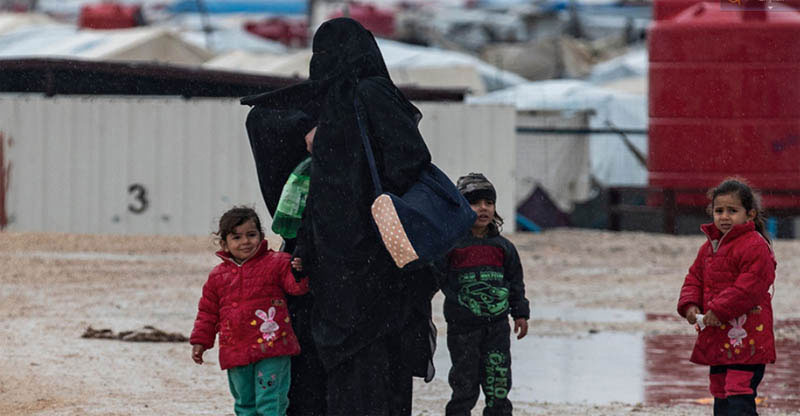 Migrants
Migrants
For 55 million displaced, status quo ‘not an option’
New York: Nationally-owned solutions must be found for more than 55 million people displaced within their own countries, according to a new report presented to the UN Secretary-General by the High-Level Panel on Internal Displacement, released on Wednesday.
“For several decades, the number of internally displaced persons (IDPs) around the world has been growing, reaching record highs year after year”, Secretary-General António Guterres said, receiving the Panel’s report, Shining a Light on Internal Displacement: A Vision for the Future.
“Humanitarian assistance is vital to help them survive. But more is needed to restore a sense of normalcy and provide solutions”, he added.
Call to step up action
To assist the millions trapped in the displacement crisis, the report urges States to take a “development-oriented approach” for citizens and residents, forced from their homes by violence, conflicts, disasters and the impacts of climate change.
In presenting its report, the panel called on Governments, civil society, the international community and the private sector, to step up collective action towards systematic changes to end protracted displacement.
Finding solutions
A Vision for the Future acknowledges “a collective failure” to prevent, address and resolve internal displacement, but also identifies opportunities to shift approaches and practices that could end the unnecessary suffering.
According to the report, IDPs must be able to exercise their fundamental rights and not be seen or treated only as beneficiaries of short-term assistance.
Currently, they are not systemically integrated in Government policies, development financing, peace processes or UN strategies.
“It is in the best interest of Governments to own this issue, because they cannot achieve the Sustainable Development Goals (SDGs) without improving the lives of all IDPs, from displaced women and children to older persons,” said Panel Co-Chair, Donald Kaberuka.
Supporting nations
To support Governments, the panel called for stronger UN leadership through more consistent actions to deal with the humanitarian, development, peace, disaster and climate factors, that fuel displacement.
And to help nations overcome barriers, the authors also recommended that a Global Fund on Internal Displacement Solutions be established to provide financial and technical support to national plans and strategies.
“Given the current state of conflicts and trajectory of urbanization and climate change, the time to act is now. Maintaining the status quo is not an option”, Panel Co-Chair Federica Mogherini said.
Other key takeaways
Characterized by profound human suffering, internal displacement is one of the world’s most neglected crisis, the socio-economic impacts of which can further push the SDGs out of reach.
The panel was struck by the lack of political will to address internal displacement and that too many States failed to acknowledge or take responsibility for their displaced citizens and residents.
Moreover, the UN, donor countries and international financial institutions, have neglected to demonstrate the level of commitment required to overcome this global crisis.
Solutions start with development
The Panel calls for a development-oriented approach that prioritizes solutions at the local and national level and goes beyond humanitarian assistance.
They also argue for the appointment of a new UN Special Representative dedicated to advancing IDP solutions because global internal displacement continues to worsen.
And they’re calling on the Secretary-General to establish a Private Sector Advisory Board, to help find solutions to internal displacement. Mr. Guterres will now consider the findings, and take stock of the report.
While the political will of governments can make or break changes, the authors said that collective action is key in the years ahead.
Support Our Journalism
We cannot do without you.. your contribution supports unbiased journalism
IBNS is not driven by any ism- not wokeism, not racism, not skewed secularism, not hyper right-wing or left liberal ideals, nor by any hardline religious beliefs or hyper nationalism. We want to serve you good old objective news, as they are. We do not judge or preach. We let people decide for themselves. We only try to present factual and well-sourced news.







